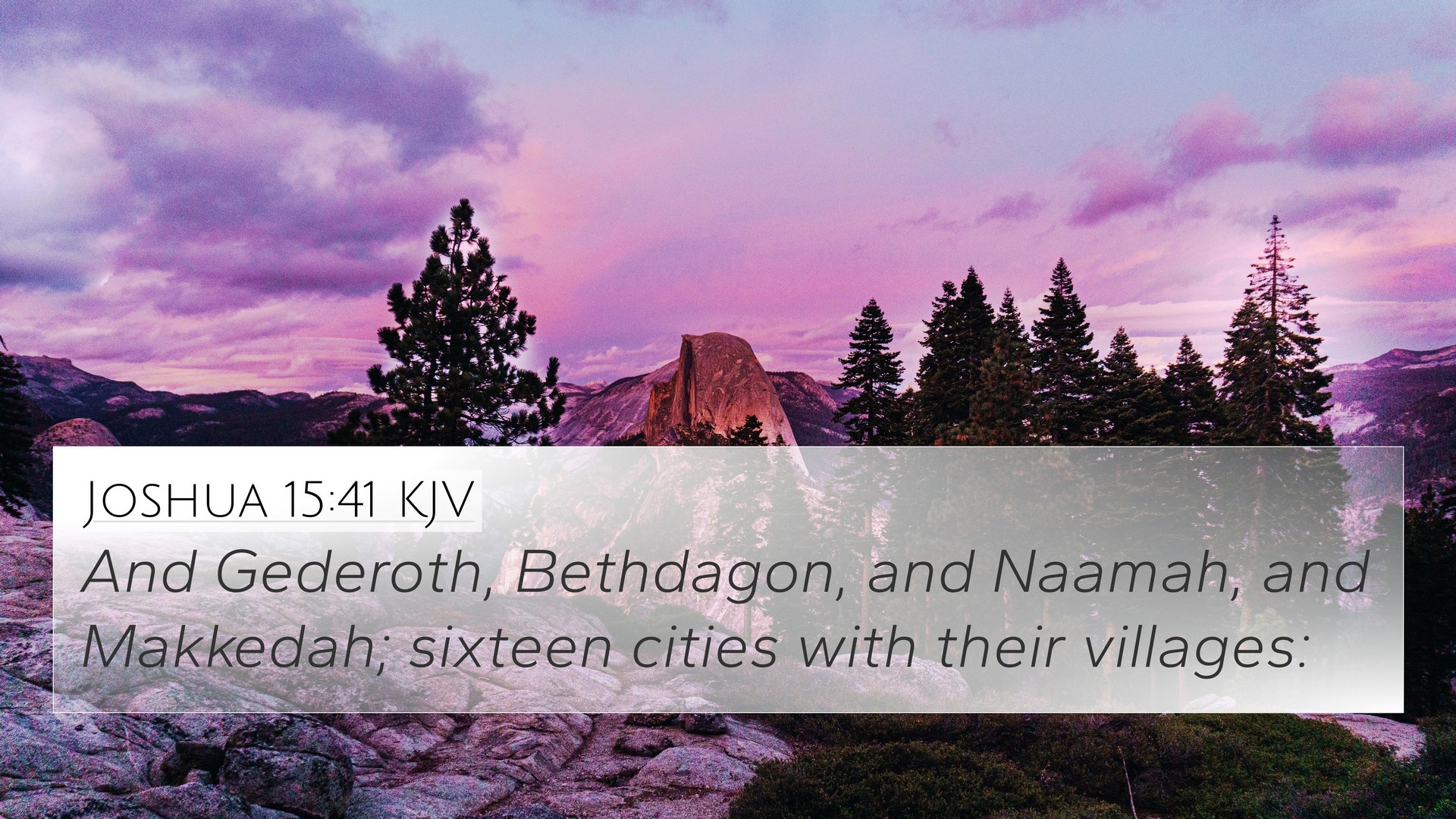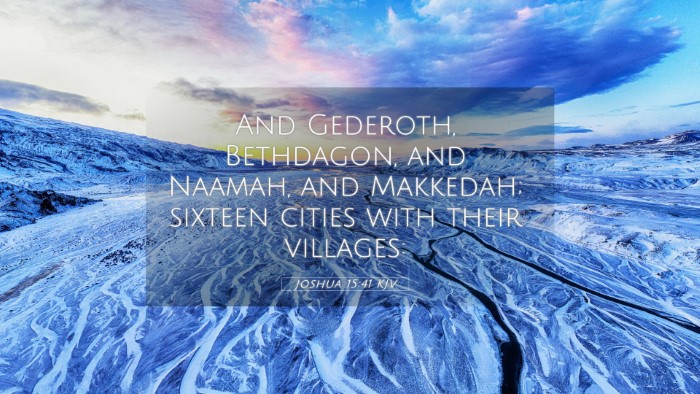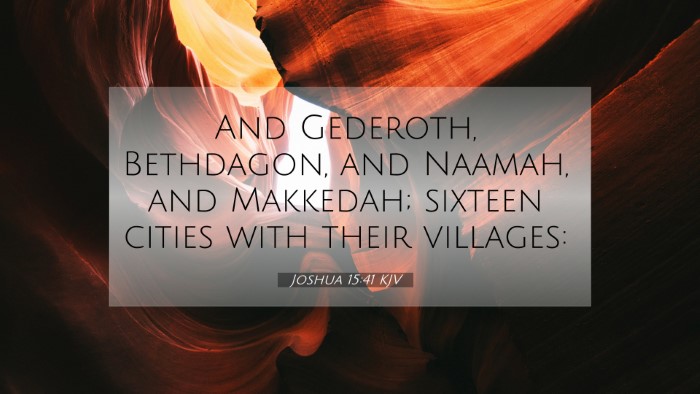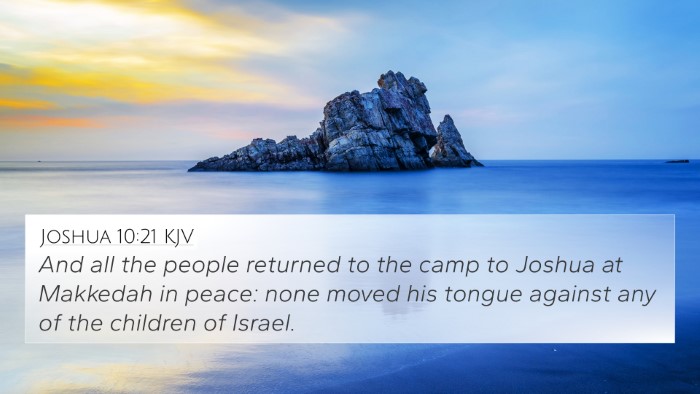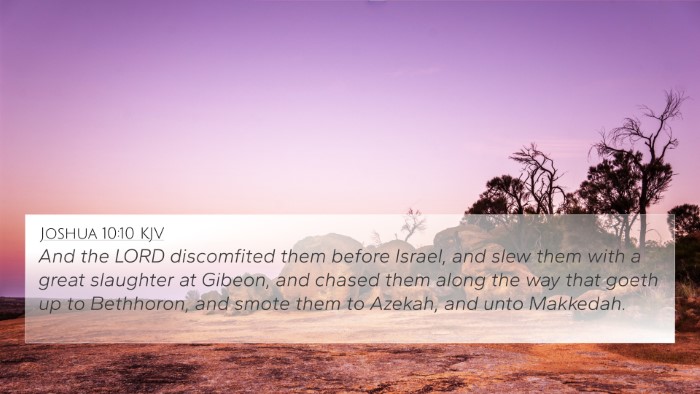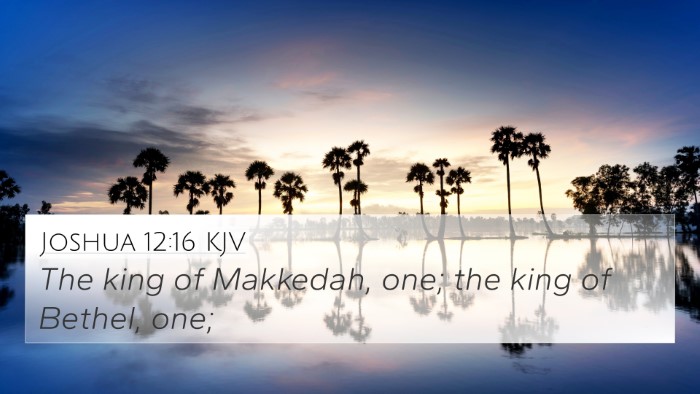Understanding Joshua 15:41
Joshua 15:41 states: “And Gederoth, and Beth-dagon, and Naamah, and Makkedah; sixteen cities with their villages.” This verse is part of the enumeration of cities within the tribal inheritance of Judah. To fully appreciate its meaning, we must consider insights from various public domain commentaries like those by Matthew Henry, Albert Barnes, and Adam Clarke.
Commentary Insights
Matthew Henry's Commentary
Henry emphasizes the significance of geographical inheritance among the Tribes of Israel, noting that the cities listed were crucial for the settlement and sustenance of the people. He highlights that the enumeration serves to document God's provision for His people as they entered their Promised Land.
Albert Barnes' Commentary
Barnes discusses the historical context, indicating that the naming of cities serves as a reminder of God’s promise to Abraham regarding the land of Canaan. The specific mention of Gederoth, Beth-dagon, Naamah, and Makkedah signifies the fulfillment of divine promises, and each location carries historical and spiritual relevance in the unfolding narrative of Israel.
Adam Clarke's Commentary
Clarke suggests that these cities were not only useful for habitation but also played a role in the defense and administration of the region. He also reflects on the religious implications of the cities, some of which were named after pagan deities, prompting further discussion about the people's struggles with idolatry.
Thematic Connections
This verse connects with broader themes within the Bible, such as God's faithfulness, the establishment of Israel, and the ongoing struggle against idolatry. Here are some notable Bible cross-references that enhance the understanding of Joshua 15:41:
- Joshua 12:9-16: Lists conquered kings and affirms God's promises to Israel.
- Numbers 34:3-12: Details the boundaries and inheritance of the land.
- Deuteronomy 1:38: Establishes the leadership and inheritance of the land.
- Joshua 21:9-11: Discusses the cities given to the Levites and their pastoral roles.
- 1 Samuel 6:18: References the cities of the Philistines which displays historical context.
- 2 Chronicles 28:18: Mentions conflict involving the cities, stressing their strategic importance.
- Isaiah 36:1: Highlights the significance of regions during the Assyrian incursion.
Inter-Biblical Dialogue
The cities mentioned in Joshua 15:41 initiate an inter-Biblical dialogue, allowing readers to explore connections between the Old Testament's land inheritance and the New Testament's fulfillment of God's promises through Christ. The cities serve as markers of Israel's identity and heritage.
Tools for Bible Cross-Referencing
For deeper insights, utilizing tools for Bible cross-referencing can be beneficial:
- Bible Concordance: Helps locate verses based on keywords.
- Bible Cross-Reference Guide: Provides relational context between verses.
- Cross-Reference Bible Study: Methodologies to explore thematic connections.
- Bible Reference Resources: Compilations of verses that interlink various themes.
Conclusion
Joshua 15:41 encapsulates more than a mere list of cities; it represents God’s abiding promise and provision for His people. By examining the verse through various commentaries and cross-referencing related passages, believers gain a richer understanding of God’s faithfulness throughout Scripture.
As readers delve into the connections between passages, they will discover a tapestry of divine narratives woven throughout the Bible, showcasing God's plans spanning generations. This interconnectedness through cross-referencing biblical texts encourages a holistic grasp of Scripture and invites further exploration into the Word.
